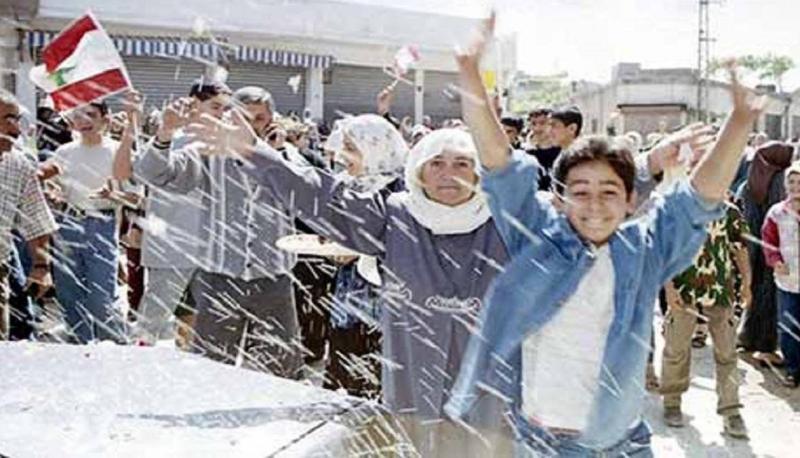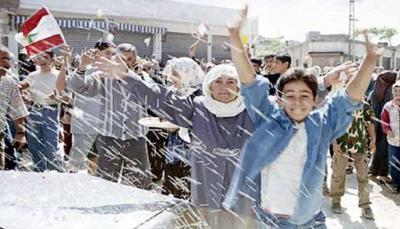If "Hezbollah" believes that the majority of Lebanese are joyfully and proudly awaiting the "Resistance and Liberation Day," it is mistaken or underestimating what this anniversary has become 24 years after the joyful historical event. While no sane citizen denies the sacrifices made by the "party," and previously by the "Lebanese National Resistance Front," in breaking the power of the occupation and forcing its withdrawal from the South and West Bekaa, the party must recognize that it mismanaged this achievement, undermined its significance, and made it exclusive to a particular faction and sect instead of transforming it into a possession and heritage for all Lebanese, serving as a building block for a prosperous future.
It is well-known that the anniversary has lost its noble meaning over the years, particularly after the assassination of former Prime Minister Rafik Hariri and the subsequent events that involved Hezbollah's weaponry or momentum, becoming part of the factional divide, as the party has monopolized it. Instead of building upon it to engage in a state project, it turned it into a shield for betrayal and arrogance toward all other Lebanese. Rather than emulating the model of the French resistance, which placed itself and its weapons under the republic after defeating the Nazi occupation, the party has ingested the republic into its ideological political project, the latest manifestation of which was the gathering of Iranian axis militias on the sidelines of the funerals of Raisi and Abdullahian in Tehran.
There is no need to elaborate on the events of the past two decades during which the party has controlled the state, knowing the difficulty of ruling it. It followed a policy of nibbling and digesting—expanding and shrinking simultaneously—but on its way to becoming a formidable regional power, like an elephant in a glass exhibition. The outcome is as bright as the sun: we live in the remnants of a plundered state. Its borders are porous and its institutions are paralyzed. While its citizens emigrate in search of a decent life after options have narrowed in their occupied and dilapidated homeland, they are overwhelmed by a wave of brotherly displacement that would not have reached the level of an existential threat were it not for the policies of disruption and the subjugation of the weak and subservient governments. Not to mention the implementation of an agenda by a bloc that sees Lebanon merely as a field for an expansionist project that has only so far achieved destabilizing the capitals it dominated and ruining the fabric of the states it touched.
Lebanon did not need anything more to complete its tragedy and realize that the achievement of liberation has become a fig leaf to cover the monopolization of decision-making than the "Distraction War." Whether Yahya Sinwar's step is a costly adventure or a necessary sacrifice on the path to Palestinian liberation from occupation, Lebanon's involvement was absurd and cataclysmic par excellence, serving as an additional stab at any hope for a state for all its citizens wishing to live with dignity and peace.
The "Resistance and Liberation Day" seems, year after year, a coercive step that awakens sensitivities of internal disputes and enters into consideration the transgressions practiced against the state and its citizens. It is regrettable that the day we hoped would be a cause for national pride and honor has become a burden on the majority of the people, as it has instead strengthened the nerve of those wanting to marginalize the state, as if it had become a day from the annals of the "Civil War" retroactively.
The memory of liberation will not regain its original meaning until a state of citizenship, freedoms, and institutions is restored, and until this dream is achieved, it is better to suspend the holiday.




